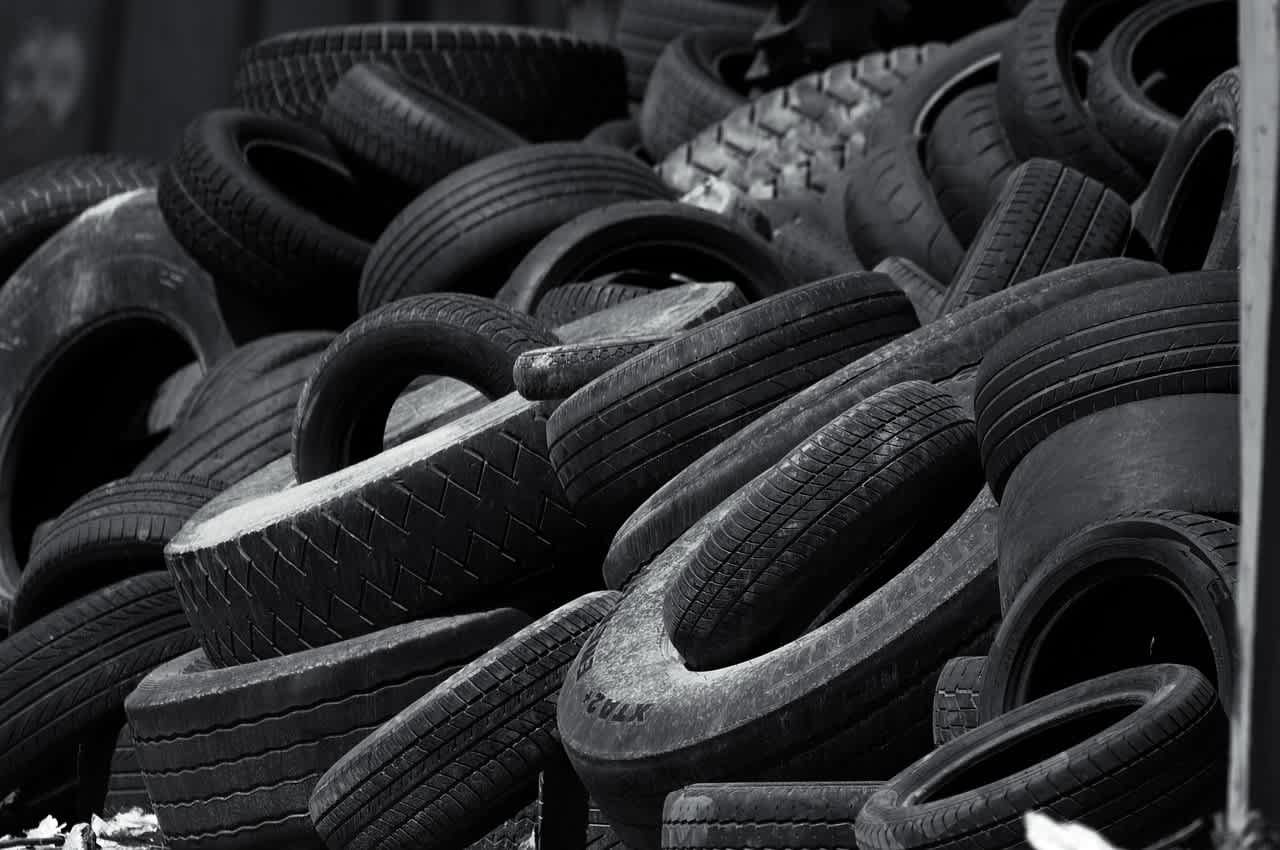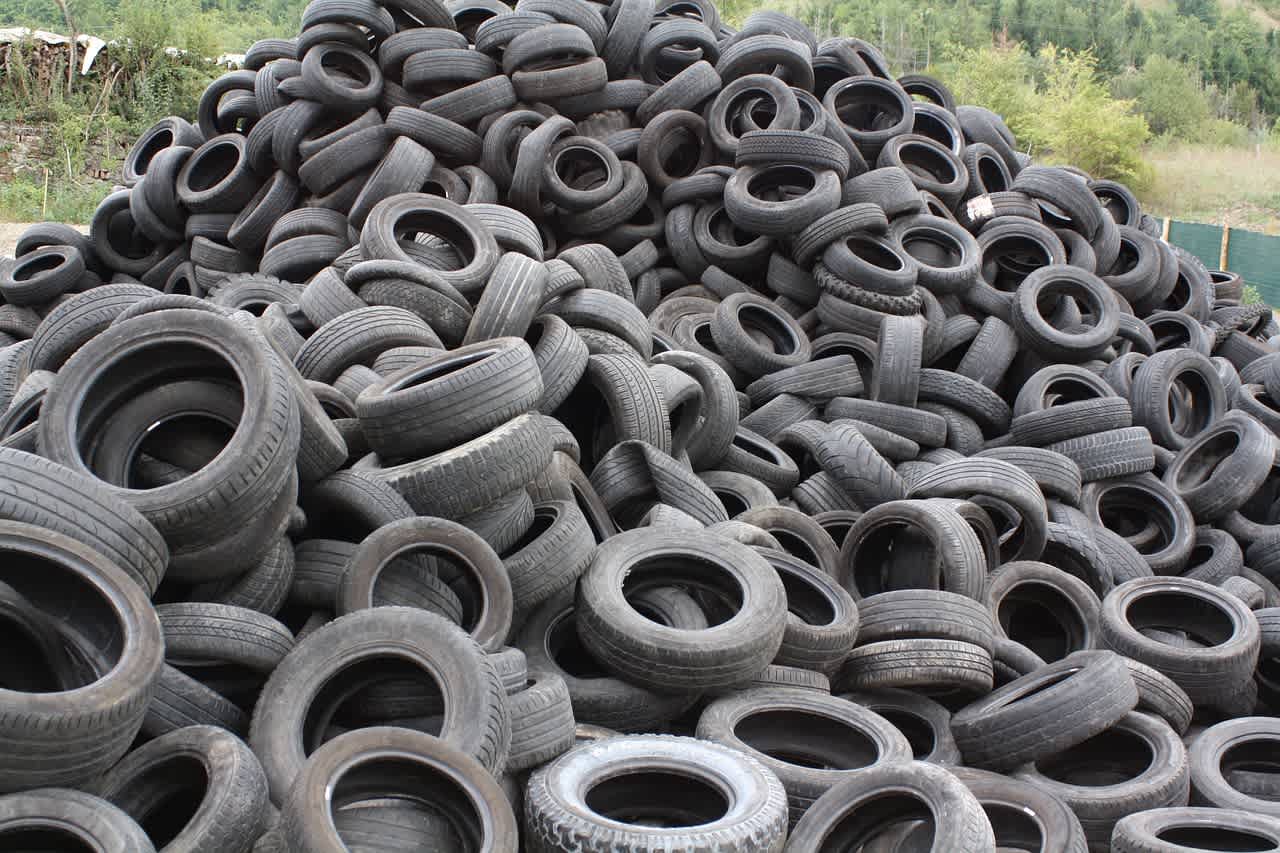Tire News & Information
Best price guarantee
Tire replacement coverage
24/7 roadside assistance
Easy returns

Tire recycling is an important aspect of responsible vehicle ownership that often goes overlooked. Properly disposing of old tires not only helps protect the environment but also conserves valuable resources.
When tires reach the end of their useful life, it's crucial to find eco-friendly ways to recycle them. Fortunately, there are various options available for individuals looking to dispose of their tires responsibly.
From local tire shops to municipal waste facilities, numerous avenues exist for recycling tires. By understanding the importance of tire recycling and exploring the available options, vehicle owners can make informed decisions that benefit both their communities and the planet.
What is Tire Recycling?
Tire recycling is the process of converting end-of-life tires into reusable materials, thereby reducing their environmental impact. This practice prevents tires from ending up in landfills, where they can take up valuable space and potentially release harmful substances into the soil and groundwater.
Through recycling, the rubber, steel, and other components of tires are separated and repurposed for various applications. The rubber can be transformed into products such as rubber mulch for landscaping, playground surfaces, and even fuel for industrial processes. Steel from the tires can be melted down and used in the production of new steel products.
Tire recycling not only minimizes waste but also conserves natural resources by reducing the need for virgin materials. By giving old tires a second life, we can significantly decrease the environmental footprint associated with tire production and disposal. This sustainable approach aligns with the growing global emphasis on circular economy principles, which aim to keep materials in use for as long as possible.
How to Find Tire Recycling Locations

Begin your search by consulting local waste management services. These organizations often have details about authorized recycling centers nearby. They can point you to facilities specifically equipped for handling tire disposal in an eco-friendly manner.
In many communities, designated sites exist for the proper disposal of tires, ensuring they are processed in ways that protect the environment. These centers often employ techniques to repurpose tires into materials like rubber mulch or asphalt, contributing to a sustainable cycle of reuse.
Additionally, reaching out to tire shops can be beneficial. Numerous tire retailers offer recycling services, sometimes as part of their customer offerings. While some may include this service in the purchase or installation process, others might apply a small fee. Remember to ask about these services during your next visit to a tire shop.
1. Contact Local Tire Shops
Local tire shops often provide an accessible option for disposing of old tires. When you need new tires or replacements, these shops frequently handle the recycling of your old tires as part of their service. This approach simplifies the process and ensures that tires are recycled properly.
Before visiting a shop, it's wise to ask about any charges linked to tire recycling. Some shops might roll the cost into their service fees, while others may list it separately. Being aware of these details can help in planning your expenses and choosing the best shop for your needs.
Exploring the policies of different tire retailers can also reveal special offers or discounts related to tire disposal. These incentives can make recycling more cost-effective and encourage sustainable habits. By favoring shops that emphasize green initiatives, you play a part in broader environmental conservation efforts.
2. Visit Municipal Waste Facilities
Many municipal waste facilities accept tires for recycling as part of their waste management services. These facilities often partner with specialized centers to process tires in ways that benefit the environment. This collaboration ensures that old tires are transformed into valuable materials, contributing to resource conservation.
Before visiting, it's beneficial to check with the facility regarding any specific requirements or fees associated with tire recycling. Some facilities may impose a small charge to cover the costs of processing, while others might recycle tires for free as part of community services. Knowing these details ahead of time can help you plan effectively.
Additionally, waste facilities might have guidelines on the number of tires you can drop off at once or the condition they need to be in. Understanding these policies will make the recycling process smoother. Using municipal waste facilities supports a broader system of sustainable waste management, reflecting a commitment to environmental responsibility.
3. Explore Retailer or Manufacturer Programs
Some tire retailers and manufacturers provide specialized programs aimed at simplifying tire recycling. These initiatives often make it easier and more affordable to dispose of old tires responsibly. Engaging with these programs ensures that tires are processed in environmentally sound ways.
Retailers may have trade-in programs, offering discounts on new tire purchases when old tires are returned. This strategy not only promotes recycling but also provides a cost benefit. Manufacturers might work with recycling partners to repurpose returned tires into alternative products, extending the utility of tire materials.
Programs may also include complimentary tire recycling events, allowing multiple tires to be recycled at no cost. By participating in these events, you contribute to a sustainable system that reduces landfill waste and conserves resources. It's beneficial to inquire with your local tire retailer or manufacturer about any active recycling programs that could assist both you and the environment.
4. Use Online Recycling Resources
The digital age offers a host of platforms dedicated to simplifying tire recycling searches. Numerous websites provide users with easy access to local recycling centers, often by allowing searches through zip codes or city names. These tools are designed to efficiently connect you with facilities that handle tire recycling, ensuring a smooth disposal process.
These online resources offer more than just location details. They include comprehensive information such as operating hours and any relevant fees, allowing for informed decision-making. By clearly stating whether a facility charges for recycling or offers free services, these platforms help you choose the most suitable option for your needs.
Moreover, many of these sites feature user reviews and ratings, providing valuable insights into the service quality of different facilities. This community-driven feedback assists in identifying reliable recycling centers, enhancing your overall experience. Utilizing these online tools ensures that your tire recycling efforts are both effective and convenient.
5. Check for Community Collection Events
Local communities often organize special events to facilitate tire recycling, offering an easy and effective way to dispose of tires in a responsible manner. These events, typically sponsored by local authorities or environmental organizations, are aimed at promoting sustainable waste practices at a grassroots level. Participating in such events allows residents to recycle tires without any associated fees, making it an appealing option for many.
Collection events are generally held at accessible locations like public parks or community centers, designed to handle high volumes efficiently. This setup not only simplifies the recycling process but also encourages community involvement and raises environmental awareness. By attending these events, residents contribute to a communal effort to reduce waste and repurpose valuable materials.
Information about upcoming collection events is usually available through local government announcements, community newsletters, or social media updates. Organizers often use these channels to ensure wide outreach and participation. Engaging in these community events not only supports environmental goals but also reinforces community networks by bringing individuals together in a shared environmental mission.
Tips on Environmentally Friendly Tire Disposal

1. Plan Ahead
To ensure environmentally conscious tire disposal, begin by exploring various disposal methods available in your locality. Familiarize yourself with nearby recycling programs and facilities that emphasize sustainability. This preparation enables you to transition smoothly when it's time to replace your tires, knowing exactly how they will be managed responsibly.
Seek out tire retailers that actively participate in recycling initiatives or partner with certified recycling facilities. This choice not only facilitates the recycling process but also supports businesses that prioritize ecological responsibility. By incorporating these considerations into your tire purchasing decisions, you help minimize the environmental footprint of tire disposal.
2. Confirm Guidelines
Understanding the specific regulations governing tire recycling in your area is crucial. Different jurisdictions may enforce distinct rules and standards for tire disposal, shaped by local environmental priorities. Engaging with local authorities or environmental agencies can provide clarity on the proper procedures and requirements.
Reach out to local environmental resources to gain insights into authorized recycling centers and any special disposal conditions that may apply. This knowledge ensures compliance with regional laws and contributes to protecting local ecosystems. By following established guidelines, you play a part in preserving the environment through responsible tire disposal practices.
By exploring these various options and following the tips provided, you can ensure that your old tires are recycled responsibly and in an environmentally friendly manner. Remember, every effort counts when it comes to protecting our planet and conserving its resources. If you're in need of new tires, consider shopping with us at SimpleTire, where we offer a wide selection of high-quality tires at competitive prices, making it easy for you to find the perfect fit for your vehicle while supporting sustainable practices.
Ready to find the perfect tires?
Search By